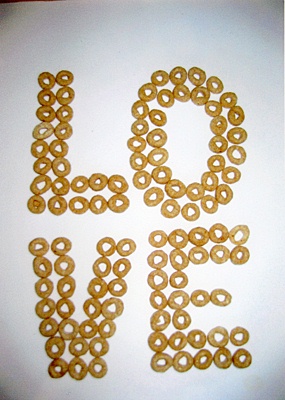All Nonfiction
- Bullying
- Books
- Academic
- Author Interviews
- Celebrity interviews
- College Articles
- College Essays
- Educator of the Year
- Heroes
- Interviews
- Memoir
- Personal Experience
- Sports
- Travel & Culture
All Opinions
- Bullying
- Current Events / Politics
- Discrimination
- Drugs / Alcohol / Smoking
- Entertainment / Celebrities
- Environment
- Love / Relationships
- Movies / Music / TV
- Pop Culture / Trends
- School / College
- Social Issues / Civics
- Spirituality / Religion
- Sports / Hobbies
All Hot Topics
- Bullying
- Community Service
- Environment
- Health
- Letters to the Editor
- Pride & Prejudice
- What Matters
- Back
Summer Guide
- Program Links
- Program Reviews
- Back
College Guide
- College Links
- College Reviews
- College Essays
- College Articles
- Back
The Big Sick
A young Pakistani comedian finds himself falling in love with an American woman, but they fall out when cultural differences collide. Then everything gets more complicated when she has to be put in a medically induced coma.
Kumail Nanjiani plays himself; while he came to the States when he was 14, he acts and lives like an American, stress-eating at drive-throughs, trying to pick up dates, and valiantly trying to squeeze laughs out of comedy gigs. More “American” than his brother Naveed, who grudgingly follows their parents’ only demands: be a good Muslim and marry a Pakistani woman. But Kumail finds himself attracted to the wit and charm of Emily Gardner, a decidedly non-Pakistani grad student. The entire story is loosely based off Kumail and his now-wife Emily Gordon’s eccentric love story, Gordon co-writing the screenplay.
Even as sparks fly and chemistry soars, Kumail and Emily hold different perspectives that seem to be irreconcilable. In a moment of exasperation, Kumail asks his parents why they are still trying to act like they’re in Pakistan, when they chose to move to America. “I’m fighting a 1,400 year-old-culture,” he says exasperatedly, thinking out loud, and he’s not wrong. There’s layers to unpack with the immigrant identity, and the different relationships the first and second generation has to do with America. The film does it authentically. In the same way the film treats romance as imperfect and compelling, so does the film take on culture and tradition.
The film boasts an incredible cast. Kumail, as himself, is ridiculously funny, trying to shake a laugh out of life’s craziest situations. He tries to crack a joke even when it’s wildly inappropriate, in the presence of his parents or Emily’s. When Emily’s father stiffly brings up 9/11, Kumail jokes, “I mean, we lost 19 of our best guys,” while Emily’s parents’ expressions drop. Zoe Kazan, as Emily, is charismatic, sweet, quirky and fierce, with a sense of self. While the story is Kumail’s, and Emily spends a significant amount of the film in a coma, she is undeniably genuine, and makes the story glow.
Holly Hunter is incredible as her mother, ferocious and fiercely protective, while the legendary Ray Romano plays Emily’s mild father, who just wants the best. Adeel Akhtar plays Naveed, Kumail’s brother, whose meek wishy-washiness in following their parents leads to some truly awkward moments. And Kumail’s parents, played by Anupam Kher and Zenobia Shroff, are the faces of that 1,400 year-old culture. They insist on tradition, because it has been woven into who they are; they want those positive forces for their son, too.
The unfunny can be funny, and supposedly too politically charged topics lead to some too funny moments. It’s also funny because Kumail is a comedian trying to make a splash on the comedy scene. As Tiffany Haddish says in her book The Last Black Unicorn, in order to do comedy, you need to be aware of yourself and how you come off to other people. Kumail is aware of the shadow cast over him by stereotypes; there are terrorist jokes left and right. But the film never fails to hit the right notes, in moments of frustration or misunderstanding, shock or despair. As Emily’s health wavers, all her loved ones lean in, while Kumail is forced to confront growing affectionate and guilt for the woman in a coma. It’s when Emily is under, and truly fighting for her life, that the mysterious illness reaches her heart. Nothing could be more symbolic. In the end, Kumail must make a decision. He realizes he can’t do arranged marriage or faking being a religious Muslim anymore. He also learns how to let go. After all, as they say, if it’s really yours, it’ll come back to you. And in the end, it’s a love story, a true story, and a big win.

Similar Articles
JOIN THE DISCUSSION
This article has 0 comments.
What does "THHRe" stand for? It's THE HOLY HITCHHIKE’S REVIEW...A shorter version of the Hitchhike, reviews principally concerning books, movies, and music. Enjoy, and let loose your commentary and suggestions below. A new column of THH every Friday!